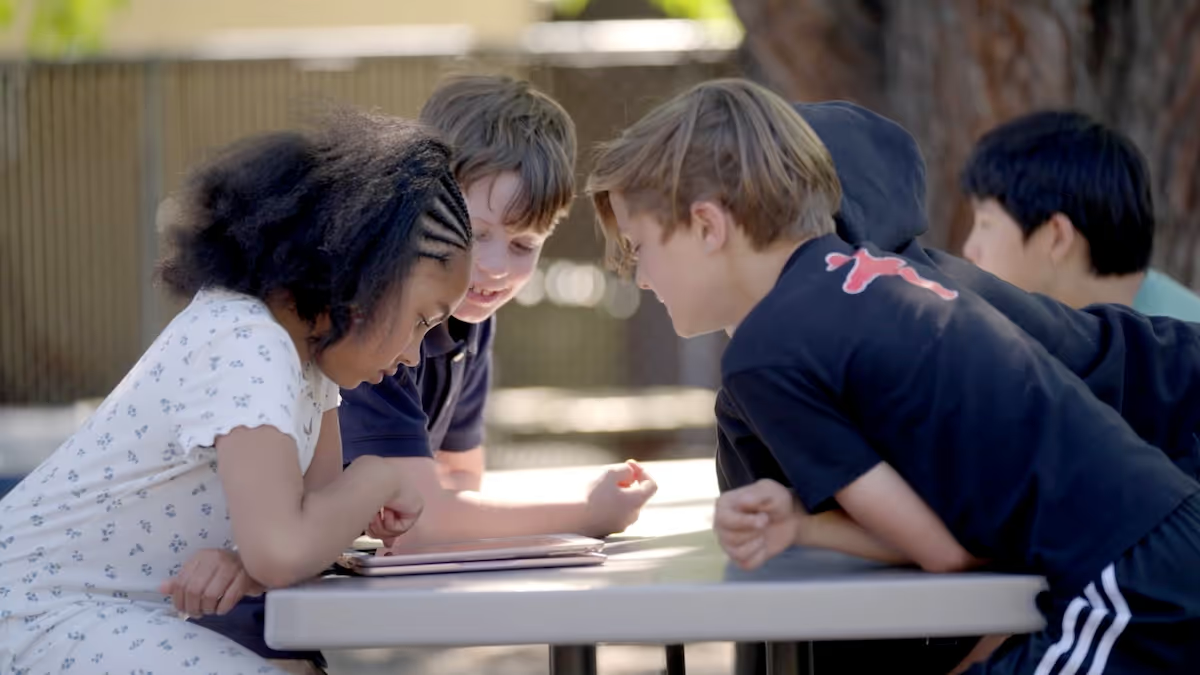


A topic I hear from parents regularly is regret—regret about saying yes to a tech device too soon. Maybe it was a smartphone, a smartwatch, a gaming console in the bedroom, or allowing social media.
In The Power Of Regret, author Daniel Pink reminds us that regret can be a powerful teacher, not just through our own experiences but also by listening to others' experiences.
Today’s post is about how to reverse course on a tech decision for your child thoughtfully — and possibly prevent even deeper regret down the road.
With the school year ending soon, some parents are considering giving a phone as a graduation gift from elementary or middle school. Others are rethinking decisions they’ve already made, like allowing Snapchat or certain graphic video games. If this is you, you’re not alone — and it’s not too late to reconsider.
Yes, this is hard. Kids have strong reasons and emotions for wanting devices — they want to be included in group texts, video games, social media, and so on. These feelings are real.
But the downsides are real, too. Many parents are working to delay smartphone use, with researchers like Jonathan Haidt recommending waiting until high school as a minimum. In Screenagers: Elementary School Age Edition, some parents share their goal of delaying until age 15 — one dad says he’s not giving his kid a phone until he’s 18. The intention is strong, but the pressure is real.
So let’s talk about what it looks like to reverse course.
Learn more about showing our movies in your school or community!
Join Screenagers filmmaker Delaney Ruston MD for our latest Podcast

Learn more about our Screen-Free Sleep campaign at the website!
Our movie made for parents and educators of younger kids
Learn more about showing our movies in your school or community!
It's not easy to reverse a decision, especially when we've promised something as significant as a first phone. But changing course — when done with care and honesty — isn't just okay, it's often one of the healthiest things we can model for our kids.
As parents, we’re always learning. Sometimes we get new information or realize something doesn’t sit right. Reversing a decision isn’t weak — it’s responsible. It shows kids that flexibility, reflection, and long-term thinking matter more than following through for the sake of it.
Delaying a phone or stepping back from a tech choice doesn’t break trust — it builds it. When you’re transparent about your reasoning, you teach your child that parenting is about protecting, guiding, and being willing to do the hard thing in their best interest.
You also show them that it’s okay to reconsider, to be unsure, and to prioritize wellbeing over peer pressure.
It’s okay to say you don’t have a specific date. Let your child know you’re gathering information, listening, and working to make a thoughtful decision.
If you’re talking with other parents about delaying phones or smartwatches as a community, be honest with your child and let them know.
Learn more about showing our movies in your school or community!
Join Screenagers filmmaker Delaney Ruston MD for our latest Podcast

Learn more about our Screen-Free Sleep campaign at the website!
Our movie made for parents and educators of younger kids
Join Screenagers filmmaker Delaney Ruston MD for our latest Podcast
Be sure to subscribe to our YouTube Channel! We add new videos regularly and you'll find over 100 videos covering parenting advice, guidance, podcasts, movie clips and more. Here's our most recent:
As we’re about to celebrate 10 years of Screenagers, we want to hear what’s been most helpful and what you’d like to see next.
Please click here to share your thoughts with us in our community survey. It only takes 5–10 minutes, and everyone who completes it will be entered to win one of five $50 Amazon vouchers.
A topic I hear from parents regularly is regret—regret about saying yes to a tech device too soon. Maybe it was a smartphone, a smartwatch, a gaming console in the bedroom, or allowing social media.
In The Power Of Regret, author Daniel Pink reminds us that regret can be a powerful teacher, not just through our own experiences but also by listening to others' experiences.
Today’s post is about how to reverse course on a tech decision for your child thoughtfully — and possibly prevent even deeper regret down the road.
With the school year ending soon, some parents are considering giving a phone as a graduation gift from elementary or middle school. Others are rethinking decisions they’ve already made, like allowing Snapchat or certain graphic video games. If this is you, you’re not alone — and it’s not too late to reconsider.
Yes, this is hard. Kids have strong reasons and emotions for wanting devices — they want to be included in group texts, video games, social media, and so on. These feelings are real.
But the downsides are real, too. Many parents are working to delay smartphone use, with researchers like Jonathan Haidt recommending waiting until high school as a minimum. In Screenagers: Elementary School Age Edition, some parents share their goal of delaying until age 15 — one dad says he’s not giving his kid a phone until he’s 18. The intention is strong, but the pressure is real.
So let’s talk about what it looks like to reverse course.
It's not easy to reverse a decision, especially when we've promised something as significant as a first phone. But changing course — when done with care and honesty — isn't just okay, it's often one of the healthiest things we can model for our kids.
As parents, we’re always learning. Sometimes we get new information or realize something doesn’t sit right. Reversing a decision isn’t weak — it’s responsible. It shows kids that flexibility, reflection, and long-term thinking matter more than following through for the sake of it.
Delaying a phone or stepping back from a tech choice doesn’t break trust — it builds it. When you’re transparent about your reasoning, you teach your child that parenting is about protecting, guiding, and being willing to do the hard thing in their best interest.
You also show them that it’s okay to reconsider, to be unsure, and to prioritize wellbeing over peer pressure.
It’s okay to say you don’t have a specific date. Let your child know you’re gathering information, listening, and working to make a thoughtful decision.
If you’re talking with other parents about delaying phones or smartwatches as a community, be honest with your child and let them know.
Be sure to subscribe to our YouTube Channel! We add new videos regularly and you'll find over 100 videos covering parenting advice, guidance, podcasts, movie clips and more. Here's our most recent:
Sign up here to receive the weekly Tech Talk Tuesdays newsletter from Screenagers filmmaker Delaney Ruston MD.
We respect your privacy.
A topic I hear from parents regularly is regret—regret about saying yes to a tech device too soon. Maybe it was a smartphone, a smartwatch, a gaming console in the bedroom, or allowing social media.
In The Power Of Regret, author Daniel Pink reminds us that regret can be a powerful teacher, not just through our own experiences but also by listening to others' experiences.
Today’s post is about how to reverse course on a tech decision for your child thoughtfully — and possibly prevent even deeper regret down the road.
With the school year ending soon, some parents are considering giving a phone as a graduation gift from elementary or middle school. Others are rethinking decisions they’ve already made, like allowing Snapchat or certain graphic video games. If this is you, you’re not alone — and it’s not too late to reconsider.
Yes, this is hard. Kids have strong reasons and emotions for wanting devices — they want to be included in group texts, video games, social media, and so on. These feelings are real.
But the downsides are real, too. Many parents are working to delay smartphone use, with researchers like Jonathan Haidt recommending waiting until high school as a minimum. In Screenagers: Elementary School Age Edition, some parents share their goal of delaying until age 15 — one dad says he’s not giving his kid a phone until he’s 18. The intention is strong, but the pressure is real.
So let’s talk about what it looks like to reverse course.

When teens say they hate you, it often feels personal, but it may not truly be about you. Teens sometimes direct their overwhelming feelings toward the safest person in their life. Instead of responding with logic or backing down out of fear, check that your limits are fair, practice self-compassion, and focus on validation rather than correction. If conflict feels stuck, family counseling can help both sides feel heard and understood.
READ MORE >
Thoughtful family tech rules help protect kids’ wellbeing, learning, and sleep while strengthening connection at home. Using the fresh start of a new year, this post shares eight practical tech habits families can discuss and adapt together, including shared social media check-ins, screen time inventories, device-free meals, regular gaming breaks, and keeping phones out of bedrooms at night.
READ MORE >
Psychologist Jean Twenge explains how parental controls can support healthier tech use by protecting sleep, limiting late night device access, and reducing kids’ exposure to content they are not developmentally ready to handle. She discusses why third party parental control tools are often more effective and easier to use than built in options, while acknowledging that no system is perfect. Clear boundaries, combined with technology based limits, can reduce ongoing conflict and make screen time rules easier to enforce.
READ MORE >for more like this, DR. DELANEY RUSTON'S NEW BOOK, PARENTING IN THE SCREEN AGE, IS THE DEFINITIVE GUIDE FOR TODAY’S PARENTS. WITH INSIGHTS ON SCREEN TIME FROM RESEARCHERS, INPUT FROM KIDS & TEENS, THIS BOOK IS PACKED WITH SOLUTIONS FOR HOW TO START AND SUSTAIN PRODUCTIVE FAMILY TALKS ABOUT TECHNOLOGY AND IT’S IMPACT ON OUR MENTAL WELLBEING.
